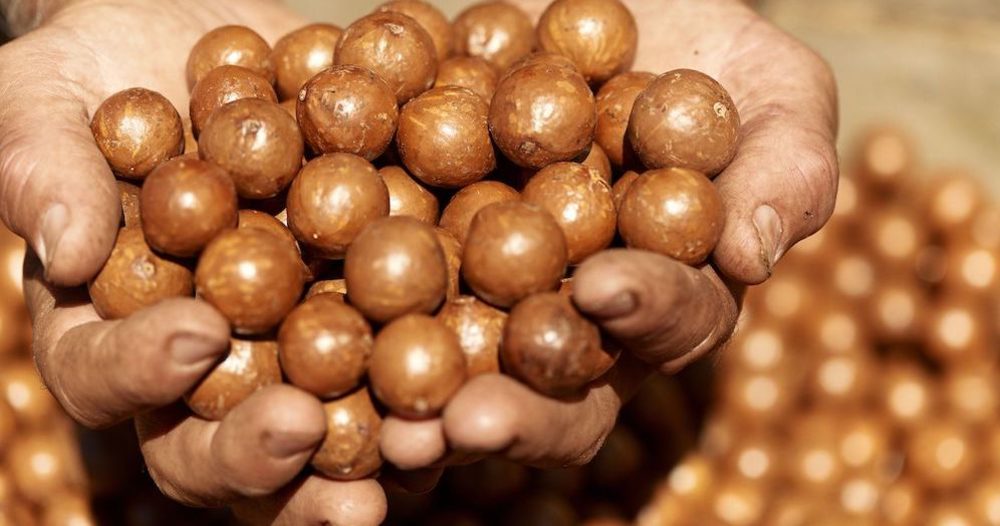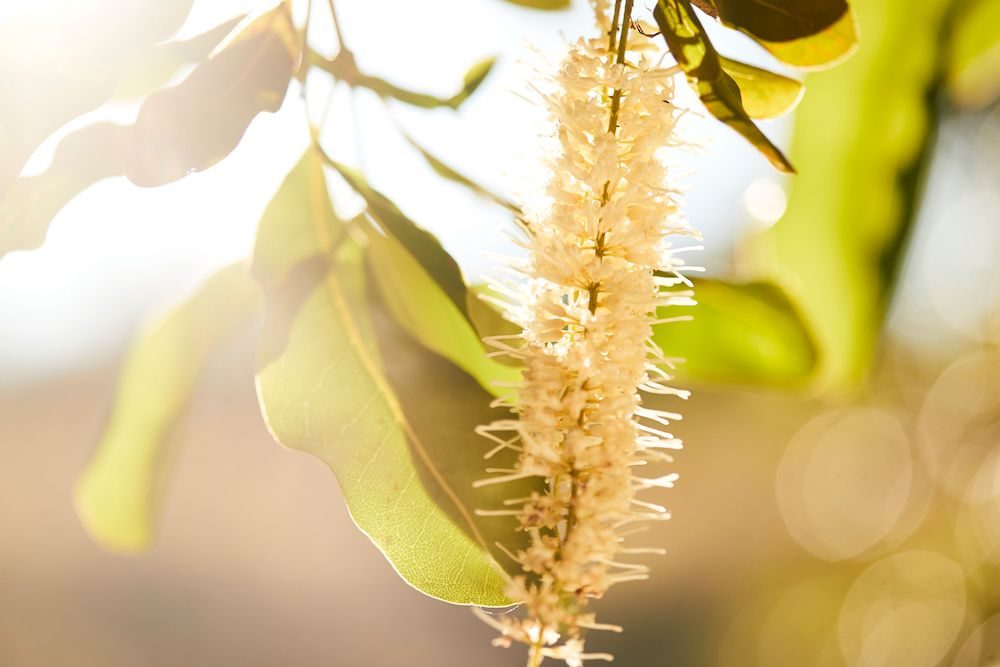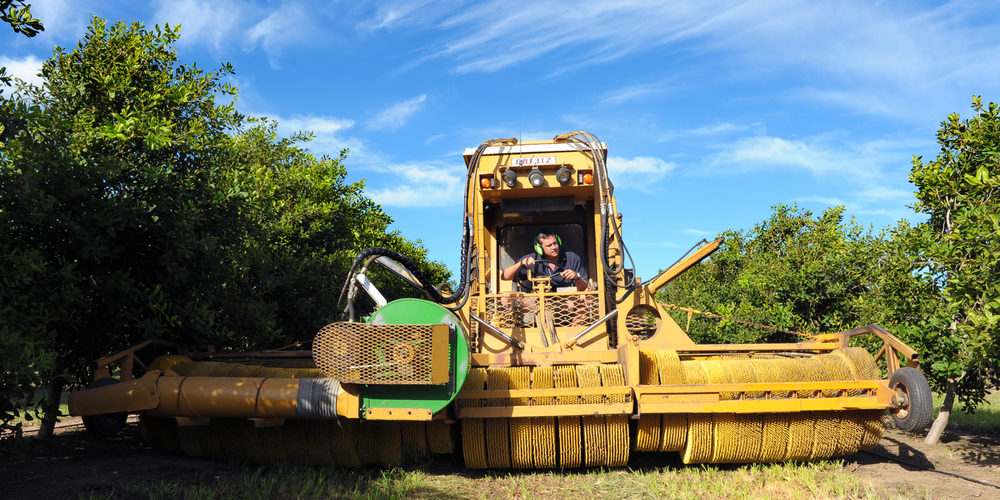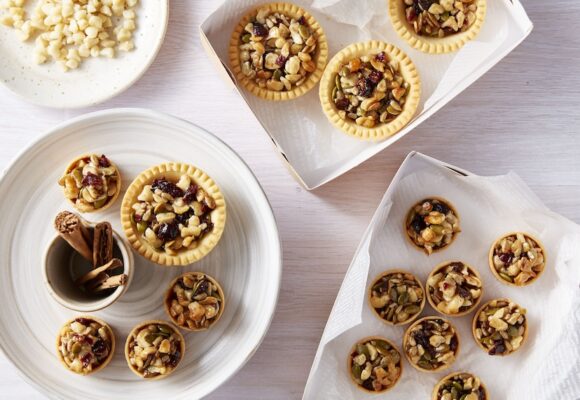
It’s no secret we aim to showcase macadamias from a variety of angles, from health and consumer trends, to research, promotion updates, and of course, innovation.
A recent surge in questions from the manufacturing sector related to growing and supply has prompted us to turn the spotlight to this important part of the macadamia story in our quest to support those brands and businesses seeking to invest in macadamias as part of their new product development plans.
Here are the answers to the most commonly asked questions of recent months. If there’s something we have missed or you would like further information, please don’t hesitate to reach out to your Australian macadamia supplier or General Manager Marketing Lynne Ziehlke.
What’s the current supply situation?
The Australian macadamia crop grew 32% between 2012 and 2018, from 37,306 tonnes to 49,300 tonnes (at 3.5% moisture), driven largely by sustained investment in productivity improvements. Growers have adopted new industry-wide productivity initiatives which are delivering better soil and tree health and higher, more consistent yields.
Average yields have increased from 2.6 tonnes per hectare to as high as 3.2 tonnes over the last five years with the best Australian growers achieving 6.0 tonnes per hectare.
The 2019 crop has been weather-affected following an unusually long, hot and dry summer, and is currently forecast to reach 42,900 tonnes in-shell at 3.5% moisture.

Australian orchards are currently flowering and weather conditions are favourable, however it is still too early to predict the performance of next year’s crop.
Below is a snapshot of the Australian industry’s key facts and figures:

The global macadamia crop has also gone from strength to strength, growing 75% between 2012 and 2018 from 126,784 tonnes to 222,632 tonnes (at 3.5% moisture).
When are macadamias harvested in Australia?
The macadamia harvest begins in February each year and typically runs until August.

This is followed by flowering in late winter and early spring. When the Australian summer hits in December, nuts begin to form in clusters, their shells harden, and oil rapidly accumulates.
While harvest only occurs for part of the year, macadamias are readily available year-round for commercial supply.
How do I find a macadamia supplier?
There are 11 suppliers of Australian grown macadamias:
- Green & Gold Macadamias (그린 앤드 골드 마카다미아스)
- Macadamias Australia (마카다미아스 오스트레일리아)
- Macadamias Direct (마카다미아스 다이렉트)
- Macadamia Marketing International
- MWT Macadamia (MWT 마카다미아)
- Nambucca MacNuts
- Nutworks (너트웍스)
- Pacific Farms (퍼시픽 팜스)
- Stahmann Farms
- Suncoast Gold Macadamias (선코스트 골드 마카다미아스)
- Waliz Nuts (월리즈 너츠)
Our Suppliers directory provides information and contact details for each.
As the world’s leading supplier of macadamias, Australia has an unwavering commitment to upholding the premium quality standards that have made our macadamias the world’s best. Our industry invests an unrivalled $5 million in research and development every year, and this has seen Australia’s macadamia farming and post-harvesting practices reach a level of sophistication that is second-to-none.
Whichever supplier you partner with, you can feel confident knowing the macadamia products they’re supplying were processed in accordance with the Australian industry’s minimum kernel quality standards.
What are the different kernel sizes available for commercial applications?
Australian grown macadamia kernel is graded into “styles” numbered from 0 to 8, which represent the sizes of the kernel pieces. Style 0 is large whole kernel, style 2 is a mixture of wholes and halves, style 4 is primarily half kernels and higher numbers, 5-8 relate to various sizes of chips and small pieces.
Macadamia oil is available in both culinary and cosmetic grade.
While specifications can vary between suppliers, below is a general visual guide to the different styles available.

Bulk macadamia kernel is generally supplied in a nitrogen flushed, vacuum sealed laminated foil package and then into a sturdy carton to reduce oxygen concentration and prevent oxidative rancidity ensuring a long storage life.
Where are macadamias from originally?
Macadamias are native to Australia, with the original species having evolved on Australia’s north-east coast around 60 million years ago. Most of Australia’s current production still occurs in this same region.
They were first traded commercially in Australia in the 1960s and remain the only native Australian crop to ever have been traded on a significant scale internationally as a commercial food product.
Many people mistakenly believe they are a native Hawaiian crop. While Hawaii was the first to produce them commercially, macadamias originated in Australia.
What are the health benefits of macadamias?
Macadamias are the ‘all-round healthy nut’. They’re naturally low in sugar and sodium and contain a range of beneficial nutrients, including:
- Thiamine (B1) – more than any other tree nut
- Manganese – play a role in enzyme activation
- Magnesium – important for bone structure, as well as muscle and nerve function
- Potassium
- Plant sterols – help reduce cholesterol reabsorption by the body
- Antioxidants
- Healthy monounsaturated fats – the highest content of all tree nuts (81%), important for heart health
- Phytochemicals
- Fibre
- Protein
Regularly eating nuts has been shown to contribute to heart health, reduce overall mortality and the risk of developing type 2 diabetes, assist with weight management, reduce the risk of cancer, improve sperm quality, reduce depression and overall promote good health.

In 2018, the global macadamia industry launched a critical, world-first research project aimed at providing strong evidence to support the role of macadamias in a healthy diet. The first of its kind for the macadamia industry, the research is expected to provide many new opportunities for our product and drive further new investment in research. The findings are due for release in 2020.
What do consumers find most compelling about macadamias?
There’s no single answer to this one! After many years promoting macadamias to consumers in Australia, Japan, Germany, Taiwan, South Korea and China we can say without hesitation that it’s a powerful package of benefits that positions macadamias as unique in the minds of consumers.
Taste: A delicious, rich and multidimensional taste experience that is buttery, sweet and creamy.
Form: Their perfect, rounded shape makes them more aesthetically pleasing than other nuts.
Texture: Simultaneously soft and crunchy, their unique texture makes for a richer eating experience.
Nutrition: Seen as delivering more overall health benefits than other nuts, especially in relation to good fats.
Guilt-free indulgence: At a time when consumers are increasingly health-conscious, yet seeking out small daily pleasures, this is a highly appealing proposition that offers the best of both worlds.
Elevation power: Multiple consumer research studies have shown the addition of macadamias to any food product elevates it in the minds of consumers. This is true across numerous categories, including bakery, snacks and ice cream.

An increasing number of manufacturers are realising the power of the macadamia to attract consumers, with 88% of new products with macadamias launched in Q2 2019 using macadamias as a selling proposition, up from 74% in the previous quarter. Promising growth in new product development with macadamias is also coming through from countries not regarded as established markets.
A word about conservation
As with many crop industries, the macadamia industry is based on a very small number of tree varieties, selected for their favourable characteristics, such as abundant crops and thin shells.
What makes our crop different is that while most horticultural food products have undergone tens, if not hundreds of generations of breeding to produce the crops that we consume today, macadamias are still relatively new and little more than three generations separated from wild trees.
In order to secure our industry’s future, it’s important to preserve the past. Wild macadamias are a treasure trove of genetic diversity – a living gene bank. Many of the commercially grown macadamia varieties our industry rely on today are from a very narrow genetic base. This means the rest of the DNA from all the other wild macadamias has untapped potential for development of the international macadamia industry.

As the home of the last remaining wild macadamia trees, Australia is at the forefront of this important work. Our industry established The Macadamia Conservation Trust, a not-for-profit environmental organisation that aims to conserve remaining wild macadamia trees in their native habitat for future generations, through a program called Wild About Macadamias.
The Trust is a reflection of how seriously our industry takes its environmental responsibilities and its passion for conservation, research and education – all of which are vital for the ongoing successful future of the macadamia industry.
Some of the major activities currently being undertaken by the Trust include a Wild Macadamia Hunt that is being run to track down old wild macadamia trees in the north Australian city of Brisbane before they’re lost forever, as well as plans for the largest arboretum of wild macadamias in the world.
Need to know more?
We hope this has answered your macadamia growing and supply questions. For further information or to start a conversation about macadamia supply, please don’t hesitate to contact an Australian macadamia supplier or General Manager Marketing Lynne Ziehlke.


